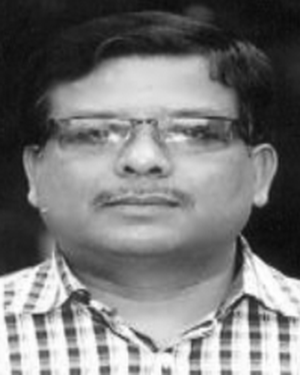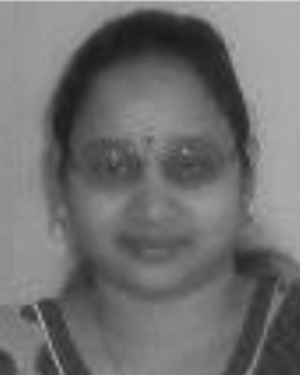Abstract:
This paper presents a new parameter extraction method for photovoltaic (PV) modules exploiting Bacterial Foraging Optimization (BFO) technique. In a PV system, validation...Show MoreMetadata
Abstract:
This paper presents a new parameter extraction method for photovoltaic (PV) modules exploiting Bacterial Foraging Optimization (BFO) technique. In a PV system, validation of the model of a PV module with correctly chosen parameters is essential. An efficient parameter extraction method is required to estimate the parameters of PV module. Although, a number of parameter extraction methods are available in literature but there is a need to explore parameter extraction methods that could extract globally optimized parameters in changing weather conditions. One of the recent evolutionary computing approaches called BFO exhibits global optimization performance. Therefore, we employ BFO for extraction of parameters of a PV module. The proposed BFO-based parameter extraction method has been tested for different types of PV modules at different test conditions. Analyzing both the simulation and experimental results obtained using BFO; it is found that the module parameters are more accurate compared to that of Newton-Raphson, particle swarm optimization, and enhanced simulated annealing methods.
Published in: IEEE Transactions on Sustainable Energy ( Volume: 9, Issue: 1, January 2018)

Department of Electrical Engineering, National Institute of Technology, Rourkela, India
Bidyadhar Subudhi (M’94–SM’08) received the
Bachelor's degree in electrical engineering from the National Institute of Technology (NIT), Rourkela, India in
1988, the M.Tech. degree in control and instrumentation from the Indian Institute of Technology, Delhi, India in 1994,
and the Ph.D. degree in control system engineering from the University of Sheffield, Sheffield. U. K., in 2003.
He is currently a Professor in the D...Show More
Bidyadhar Subudhi (M’94–SM’08) received the
Bachelor's degree in electrical engineering from the National Institute of Technology (NIT), Rourkela, India in
1988, the M.Tech. degree in control and instrumentation from the Indian Institute of Technology, Delhi, India in 1994,
and the Ph.D. degree in control system engineering from the University of Sheffield, Sheffield. U. K., in 2003.
He is currently a Professor in the D...View more

Department of Electrical Engineering, Veer Surendra Sai University of Technology, Burla, India
Raseswari Pradhan received the Bachelor's degree from the Indira
Gandhi Institute of Technology, Sarang, India, in 2002, the Master's degree from Jadavpur University, Kolkata,
India, in 2008, and the Ph.D. degree from the National Institute of Technology Rourkela, India, in 2014, all in
electrical engineering. She is currently an Assistant Professor in the Department of Electrical Engineering, Veer
Surendra Sai Univer...Show More
Raseswari Pradhan received the Bachelor's degree from the Indira
Gandhi Institute of Technology, Sarang, India, in 2002, the Master's degree from Jadavpur University, Kolkata,
India, in 2008, and the Ph.D. degree from the National Institute of Technology Rourkela, India, in 2014, all in
electrical engineering. She is currently an Assistant Professor in the Department of Electrical Engineering, Veer
Surendra Sai Univer...View more

Department of Electrical Engineering, National Institute of Technology, Rourkela, India
Bidyadhar Subudhi (M’94–SM’08) received the
Bachelor's degree in electrical engineering from the National Institute of Technology (NIT), Rourkela, India in
1988, the M.Tech. degree in control and instrumentation from the Indian Institute of Technology, Delhi, India in 1994,
and the Ph.D. degree in control system engineering from the University of Sheffield, Sheffield. U. K., in 2003.
He is currently a Professor in the Department of Electrical Engineering, NIT, Rourkela, and Coordinator in the
Centre of Excellence on Renewable Energy Systems. He is a Fellow of IET. His research interests include system and
control theory, control of PV power system, and active power filtering.
Bidyadhar Subudhi (M’94–SM’08) received the
Bachelor's degree in electrical engineering from the National Institute of Technology (NIT), Rourkela, India in
1988, the M.Tech. degree in control and instrumentation from the Indian Institute of Technology, Delhi, India in 1994,
and the Ph.D. degree in control system engineering from the University of Sheffield, Sheffield. U. K., in 2003.
He is currently a Professor in the Department of Electrical Engineering, NIT, Rourkela, and Coordinator in the
Centre of Excellence on Renewable Energy Systems. He is a Fellow of IET. His research interests include system and
control theory, control of PV power system, and active power filtering.View more

Department of Electrical Engineering, Veer Surendra Sai University of Technology, Burla, India
Raseswari Pradhan received the Bachelor's degree from the Indira
Gandhi Institute of Technology, Sarang, India, in 2002, the Master's degree from Jadavpur University, Kolkata,
India, in 2008, and the Ph.D. degree from the National Institute of Technology Rourkela, India, in 2014, all in
electrical engineering. She is currently an Assistant Professor in the Department of Electrical Engineering, Veer
Surendra Sai University of Technology, Burla, India. Her research interests include control of photovoltaic power
system and microgrid.
Raseswari Pradhan received the Bachelor's degree from the Indira
Gandhi Institute of Technology, Sarang, India, in 2002, the Master's degree from Jadavpur University, Kolkata,
India, in 2008, and the Ph.D. degree from the National Institute of Technology Rourkela, India, in 2014, all in
electrical engineering. She is currently an Assistant Professor in the Department of Electrical Engineering, Veer
Surendra Sai University of Technology, Burla, India. Her research interests include control of photovoltaic power
system and microgrid.View more


